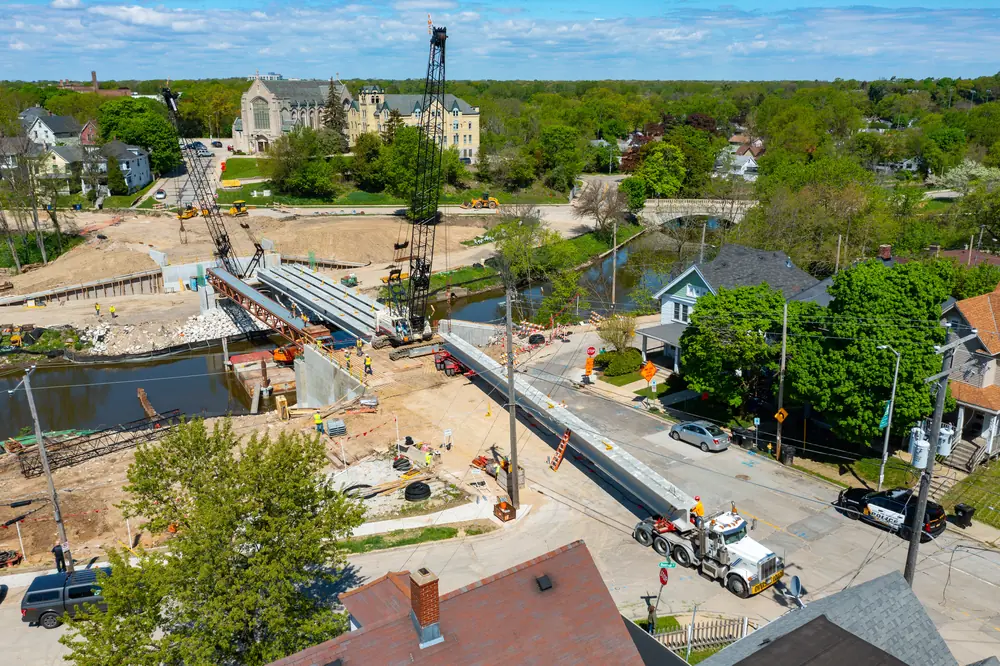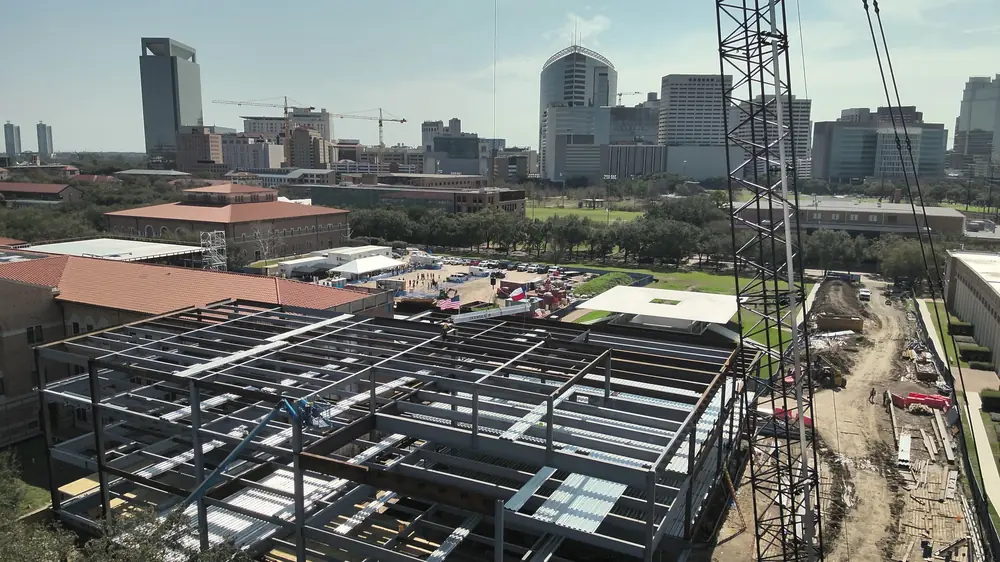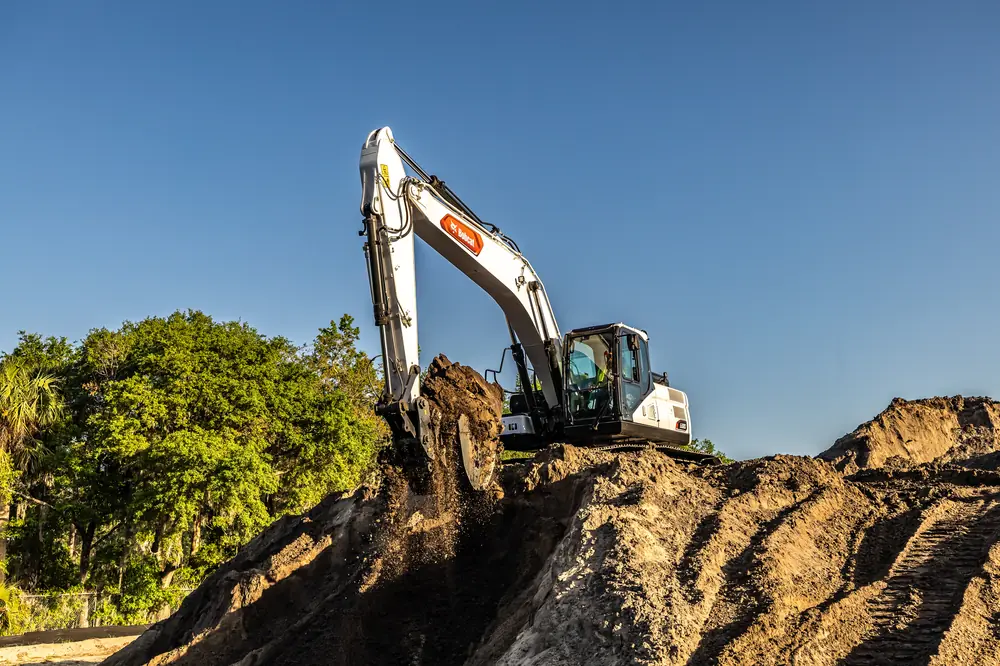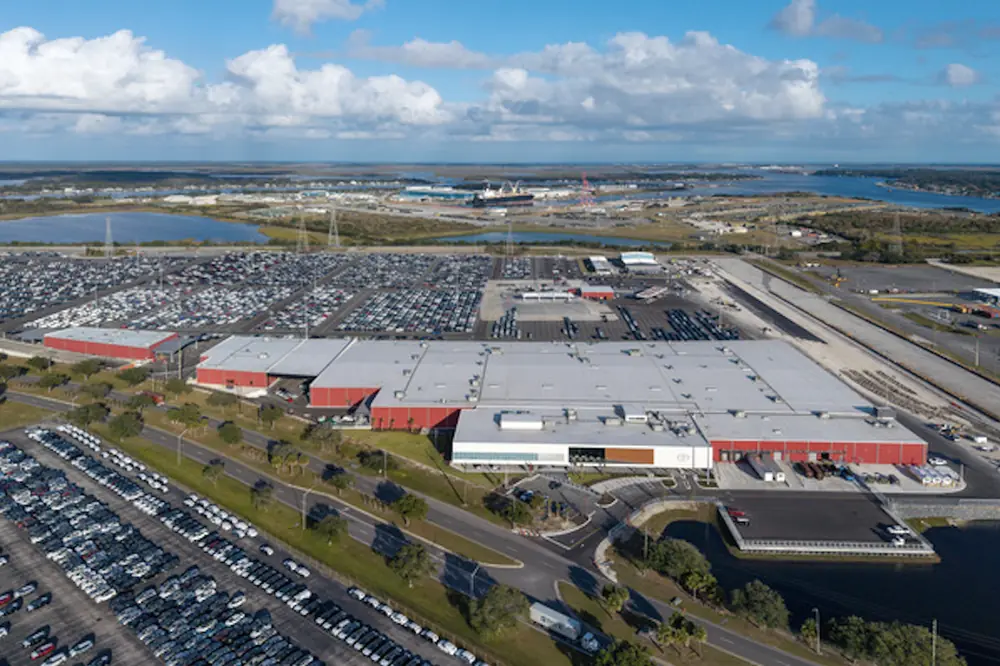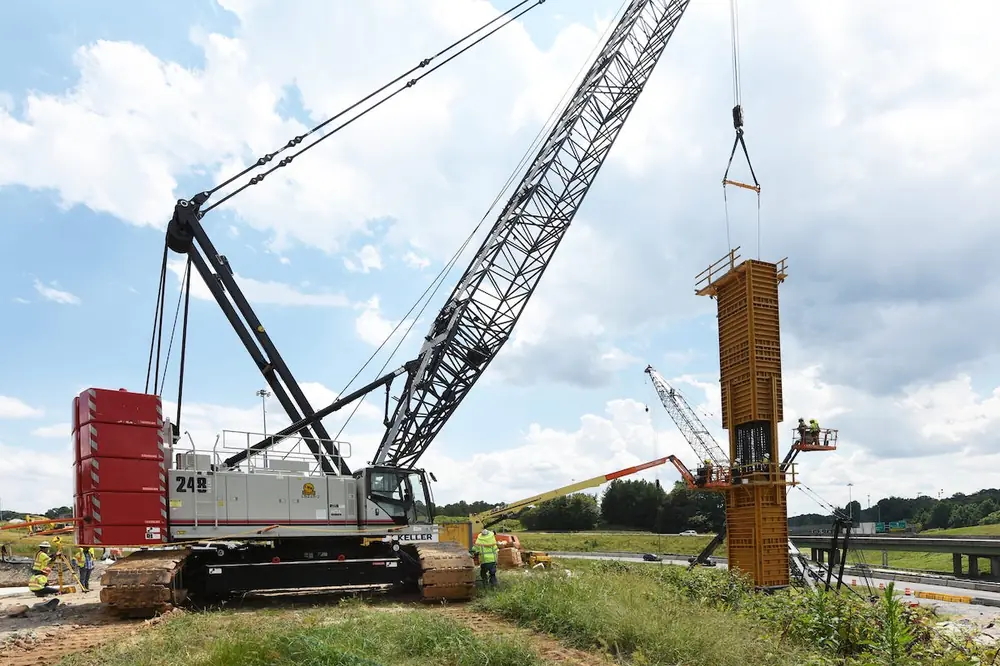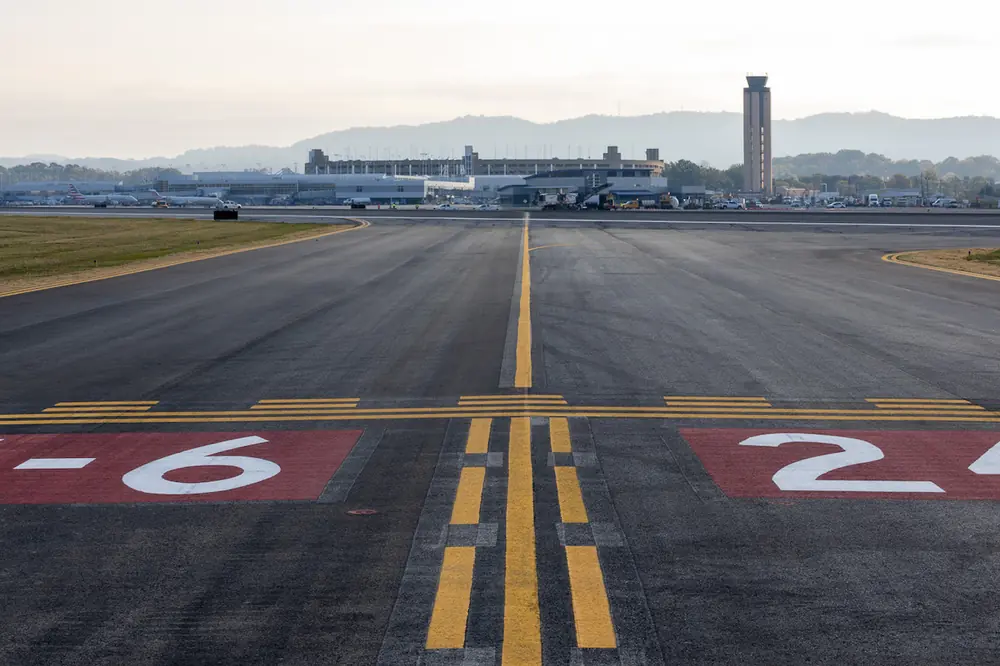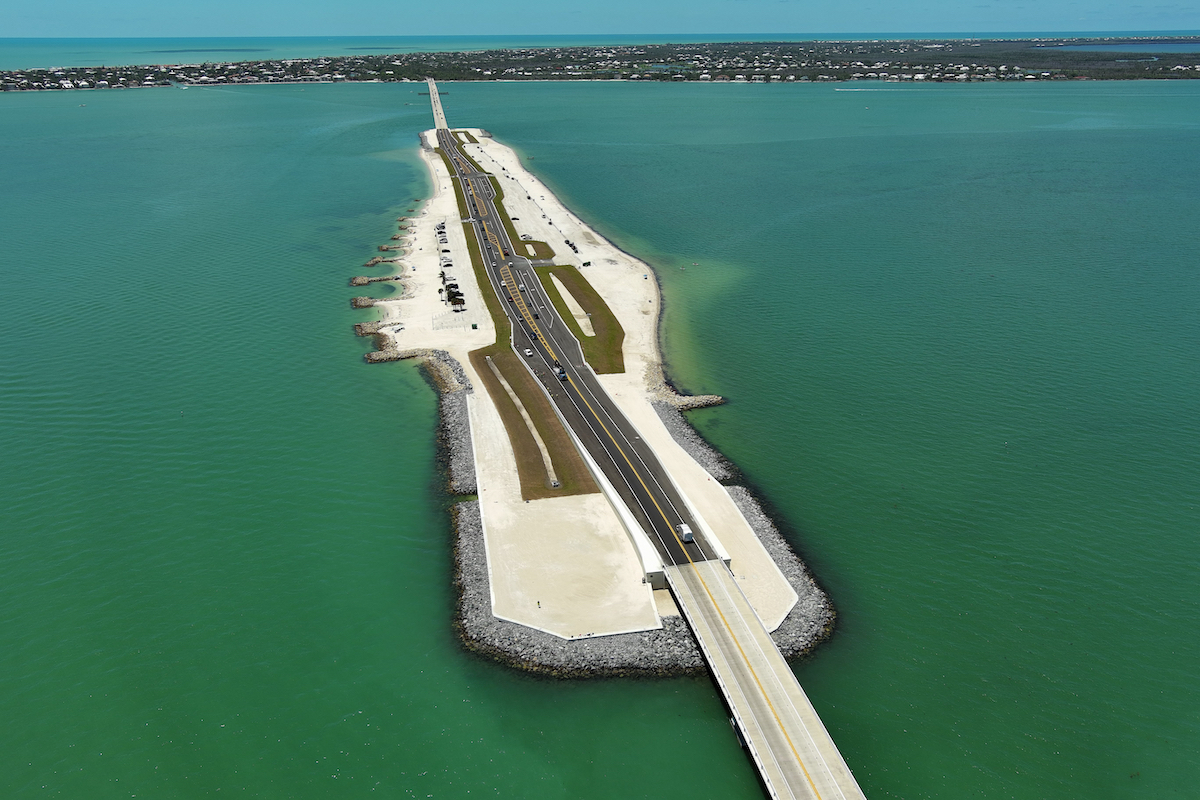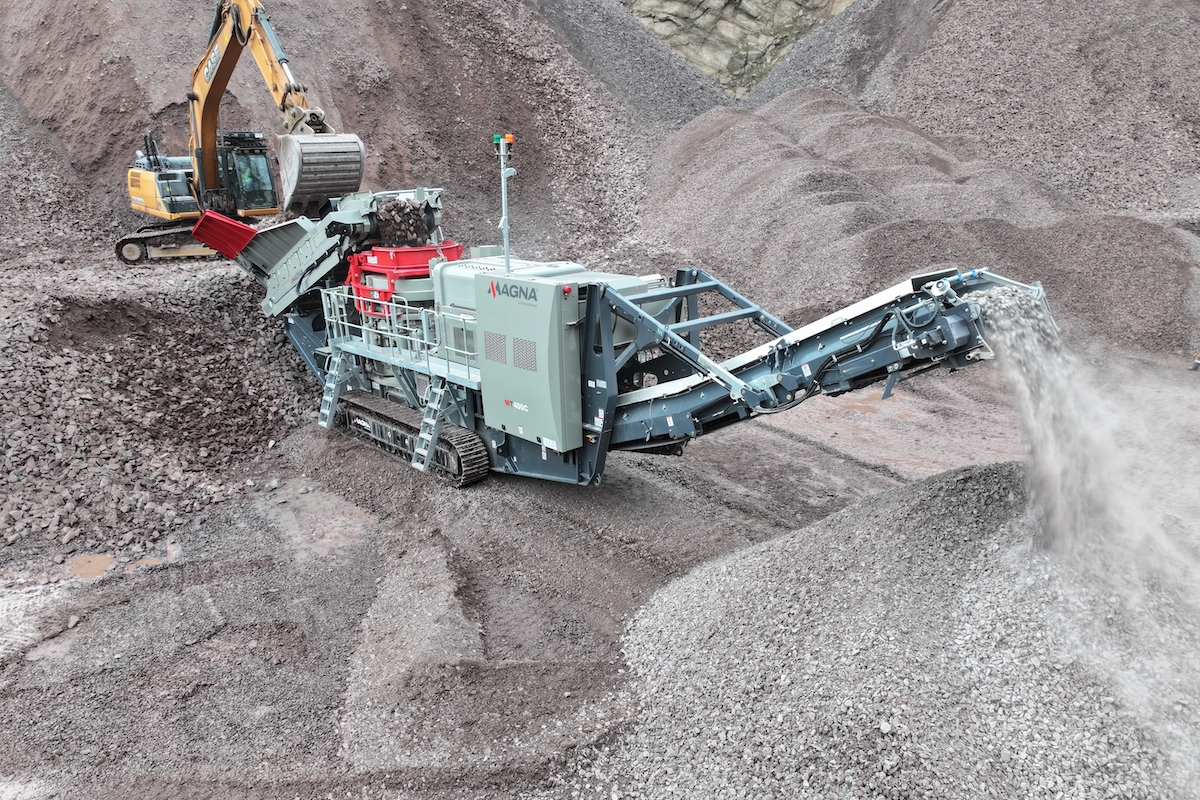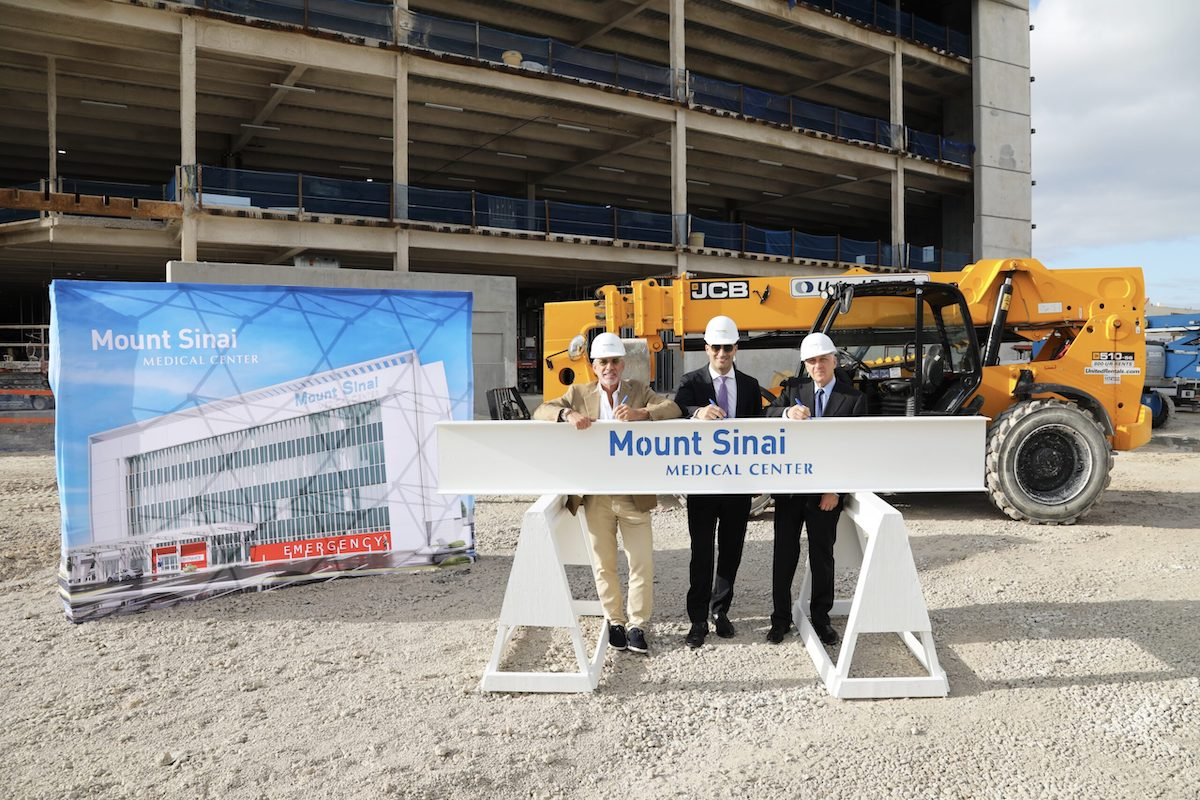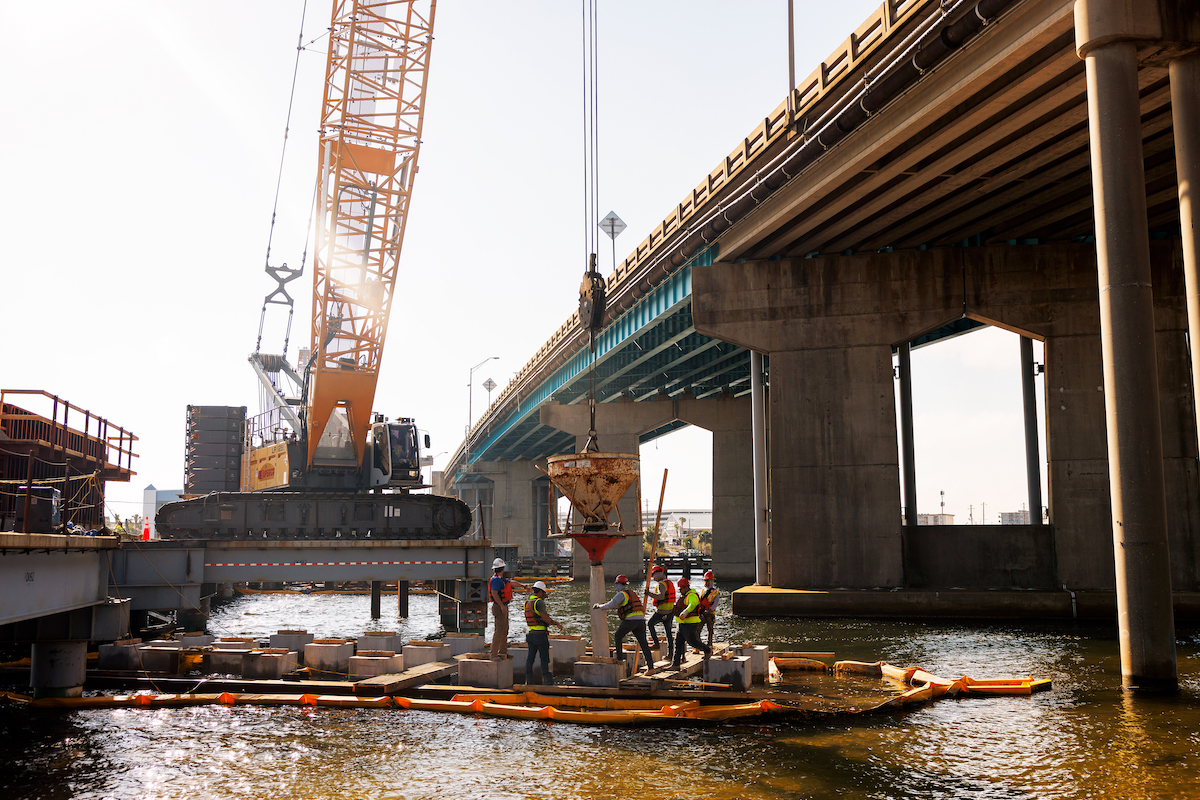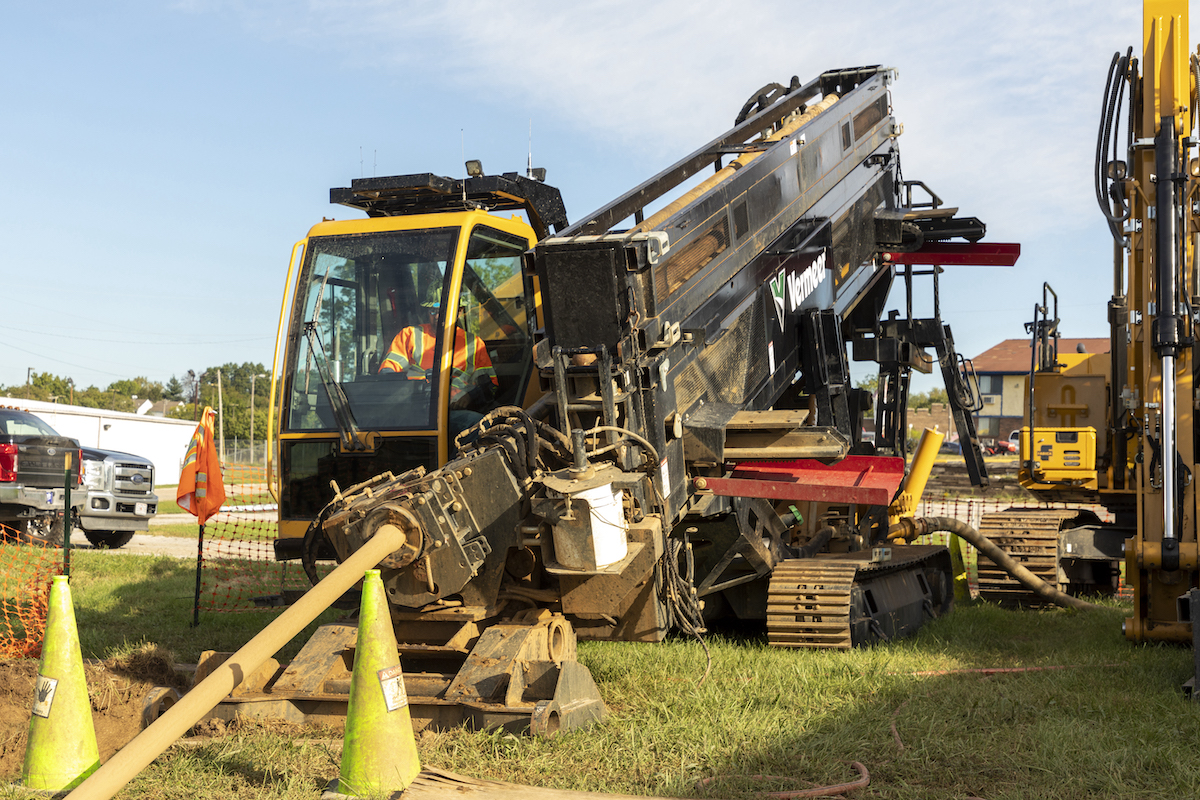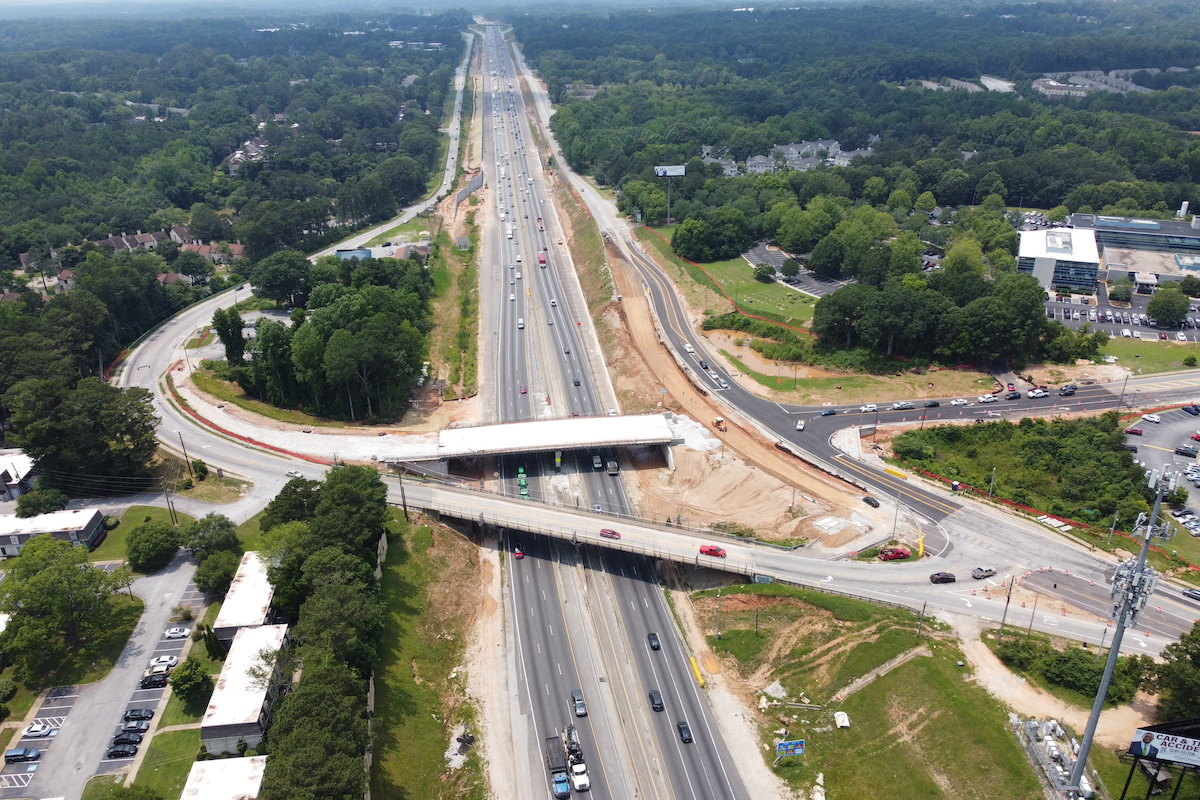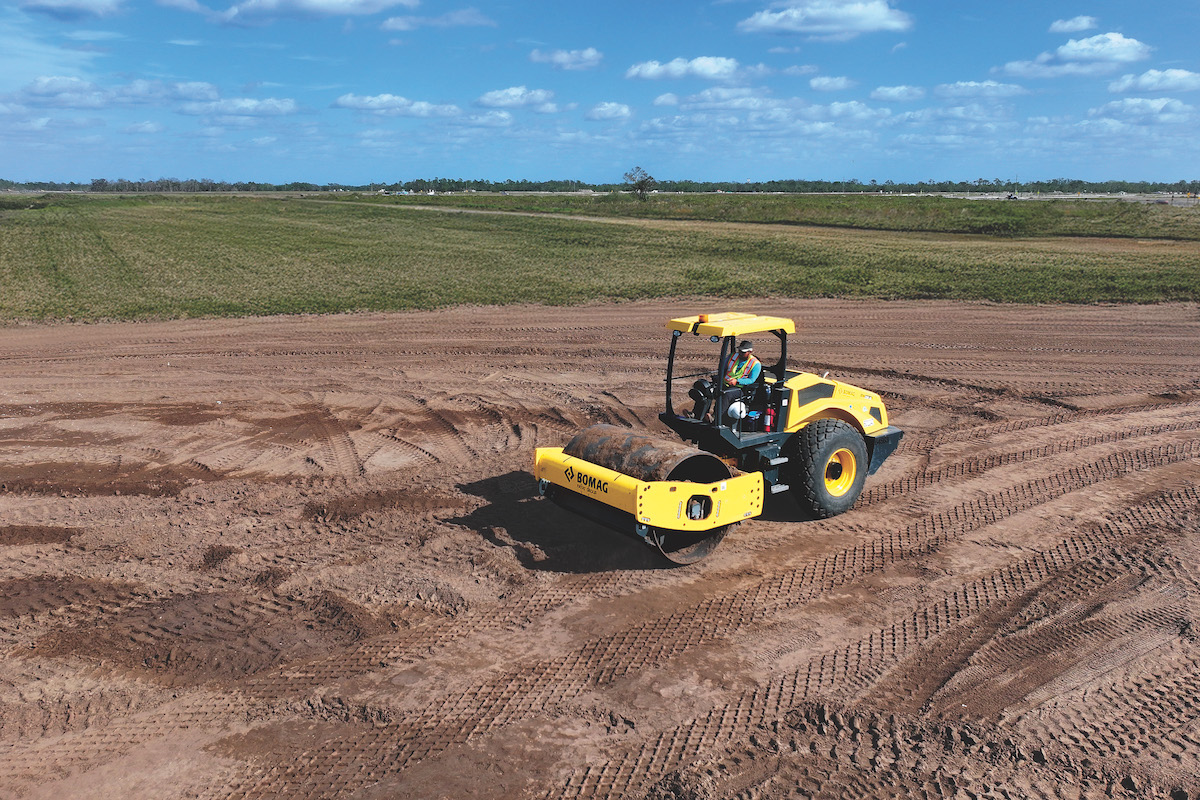OKALOOSA COUNTY, FL — Hensel Phelps announces the recent completion of the SOF Aircraft Maintenance Unit (AMU) and Weapons Hangar Facility, located at Hurlburt Field in the Florida panhandle. The team worked to complete this $70 million design-bid-build project while keeping an active airfield fully operational since the project was awarded in March 2021. This new facility provides essential support for the maintenance and operations of the 4th Special Operations Squadron of the United States Air Force, also referred to as the “Ghostrider” squadron. The AC-130J Ghostrider’s primary missions are designed for versatile capabilities that enhance ground support and aerial missions.
Construction included a new 105,041-square-foot squadron operational facility and aircraft maintenance unit with shops, a weapons shop, and office space. The hangar included 7-ton and 3-ton bridge cranes, allowing the user to move heavy loads and materials in multiple directions, as well as a 400-hertz cord reel to give the plane power without having to have the plane on, and an interior fall protection system. Adjacent to the hangar is an explosion-proof room equipped with an explosion-proof exhaust fan. The shop areas connected to the hangar include mobile high-density storage racks, mini mezzanines for tool storage, and worktables. Exterior storage racks were installed on either side of the building to house an independent storage system. The building includes 24,000 square feet of office space, assembly rooms, and conference rooms.
The facility consists of a reinforced concrete foundation and floor slab, steel structure, masonry walls and standing seam metal roof, environmental control (HVAC), fire detection, and protection and mass notification system. Additional scope included roadway and parking, associated primary utilities, communications installations, and realignment of existing utilities. The team also provided airfield pavements with direct access to the hangar. Special site conditions required excavation, fill and stabilization, and the demolition of seven existing buildings.
The facility is located adjacent to an active airfield and required the project team to be heavily involved with base operations to ensure that the flight line area remained 100 percent operational throughout construction. The team worked in collaboration with the U.S. Army Corps of Engineers (USACE) for the past three years. The project was a success due to the partnering and cooperation between USACE, the Air Force, and the contractor. Team members from all parties maintained communication throughout the project and cooperated to resolve any conflict. It was a team effort, and the team’s attitude enabled the project to successfully reach completion on time.






